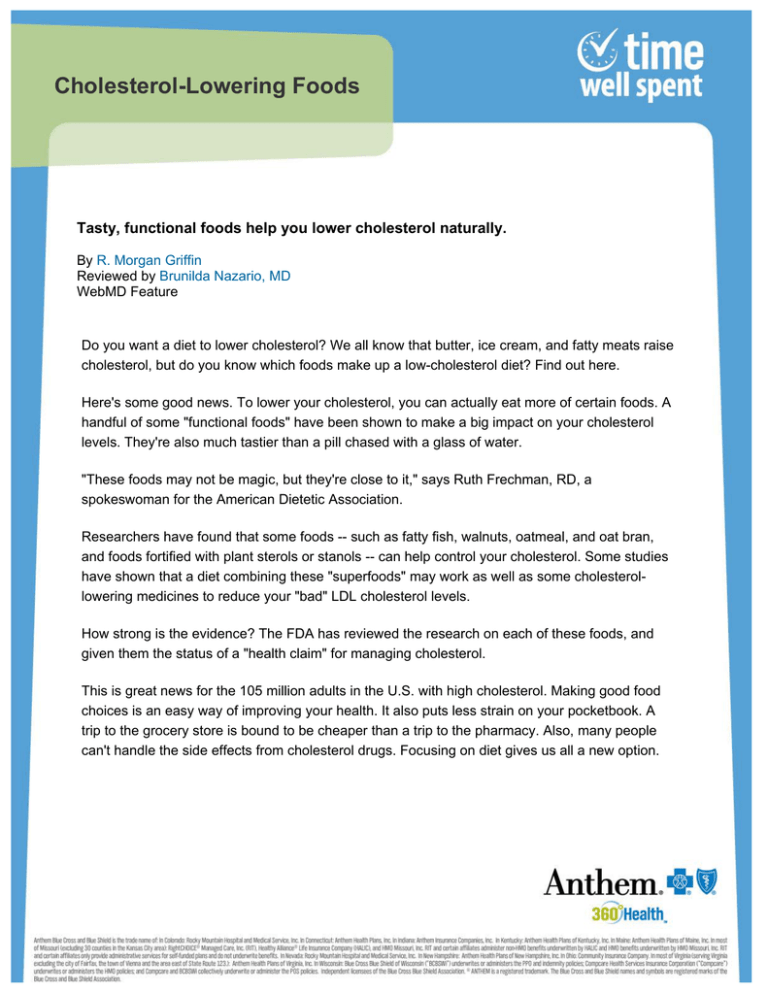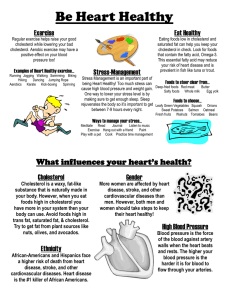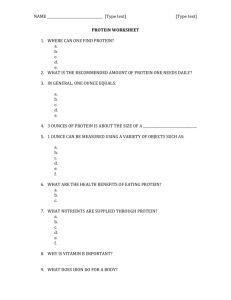
Cholesterol-Lowering Foods
Tasty, functional foods help you lower cholesterol naturally.
By R. Morgan Griffin
Reviewed by Brunilda Nazario, MD
WebMD Feature
Do you want a diet to lower cholesterol? We all know that butter, ice cream, and fatty meats raise
cholesterol, but do you know which foods make up a low-cholesterol diet? Find out here.
Here's some good news. To lower your cholesterol, you can actually eat more of certain foods. A
handful of some "functional foods" have been shown to make a big impact on your cholesterol
levels. They're also much tastier than a pill chased with a glass of water.
"These foods may not be magic, but they're close to it," says Ruth Frechman, RD, a
spokeswoman for the American Dietetic Association.
Researchers have found that some foods -- such as fatty fish, walnuts, oatmeal, and oat bran,
and foods fortified with plant sterols or stanols -- can help control your cholesterol. Some studies
have shown that a diet combining these "superfoods" may work as well as some cholesterollowering medicines to reduce your "bad" LDL cholesterol levels.
How strong is the evidence? The FDA has reviewed the research on each of these foods, and
given them the status of a "health claim" for managing cholesterol.
This is great news for the 105 million adults in the U.S. with high cholesterol. Making good food
choices is an easy way of improving your health. It also puts less strain on your pocketbook. A
trip to the grocery store is bound to be cheaper than a trip to the pharmacy. Also, many people
can't handle the side effects from cholesterol drugs. Focusing on diet gives us all a new option.
Getting Started on a Low-Cholesterol Diet
Managing high cholesterol isn't a simple do-it-yourself project. You need to work with your
health care provider. And while changing your diet may help a lot, many people still need drugs
to reduce their risk of heart disease.
Also, remember that these foods aren't cure-alls. A handful of walnuts or a bowl of oatmeal
won't make you invincible. It won't give you a free pass to eat all the high-fat foods you want.
To benefit, you still must eat low-fat foods, watch your weight, and get more exercise.
"Eating a healthy diet is not just about eating a few special foods," says Suzanne Farrell, MS,
RD, a spokeswoman for the American Dietetic Association. "There's a bigger picture. You need
to practice moderation, eat a variety of foods, and get enough physical activity."
Published June 29, 2007
Reviewed on April 30, 2007
SOURCES: Suzanne Farrell, MS, RD, spokeswoman, American Dietetic Association. Ruth Frechman, RD, Los Angeles;
spokeswoman, American Dietetic Association. Keecha Harris, DrPH, RD, spokeswoman, American Dietetic Association. U.S. Food
and Drug Administration web site. American Dietetic Association web site. National Heart, Lung, and Blood Institute web site.
American Heart Association web site. Jenkins, D. American Journal of Clinical Nutrition, February 2005; vol 81: pp 380-87.
Jenkins, D. Journal of the American Medical Association, July 23-30, 2003; vol 290: pp 502-510.
© 2005 – 2007 WebMD Inc. All rights reserved.
Link to this article:
http://www.webmd.com/content/article/134/119055.htm
This information is intended for educational purposes only, and should not be interpreted as medical advice. Please consult your physician for advice
about changes that may affect your health.




